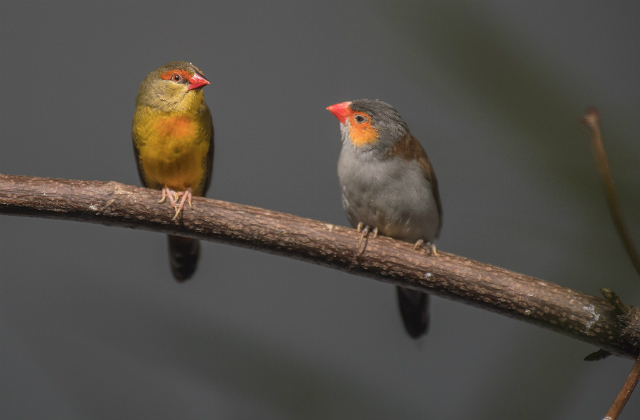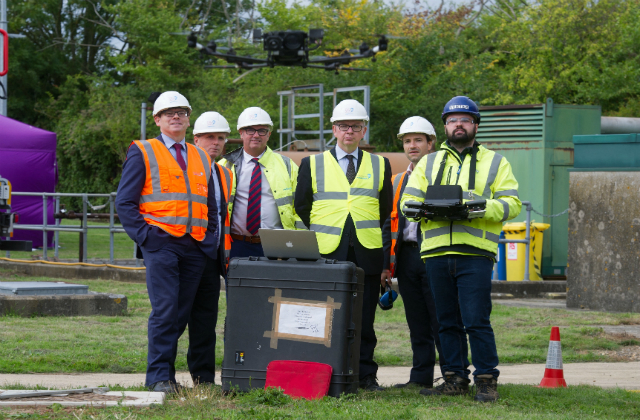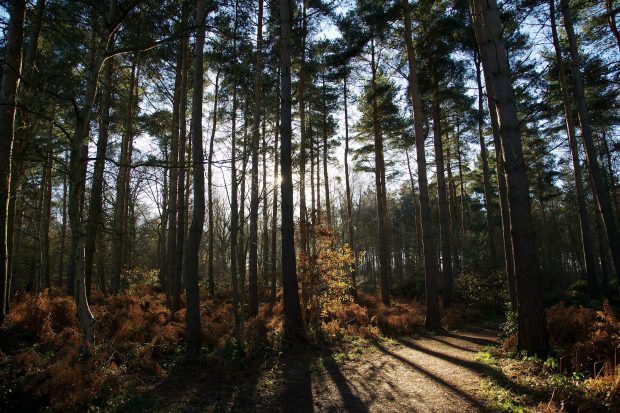One month to go until the London Illegal Wildlife Trade conference

This week marks a month until international leaders will gather in London for the international Illegal Wildlife Trade Conference to discuss and commit to action ending this vile trade.
The Daily Express has included a special two-page report about the illegal trade in wildlife including a comment piece by the Environment Secretary, Michael Gove, highlighting why he thinks this criminal trade must be stopped.
Environment Secretary, Michael Gove said in the Daily Express:
In a month’s time, the UK will be pressing for concerted international efforts when it hosts national leaders, NGOs and conservationists at the fourth Illegal Wildlife Trade Conference in London.
Saving the African elephant will be high on the conference agenda. Our new Ivory Alliance 2024, which I will chair, aims to cut the numbers killed for their ivory by at least a third by 2020, and to halve this rate again by 2024.
In a separate news story running in the media today, the British and Irish Association of Zoos and Aquariums (BIAZA), in partnership with Chester Zoo, launched a Pact of their 117 members calling for an end to the illegal trade in wildlife and helping to raise the profile of how zoos and aquariums in the UK and Ireland can educate the public and play a role in preventing illegal trading.
Environment Minister Thérèse Coffey said:
The British and Irish Association of Zoos and Aquariums and their many member organisations including Chester Zoo are carrying out important work to support wildlife around the globe by helping to stamp out this vile trade. Zoos and aquariums play an important role in helping species to survive through their education and conservation programmes.
Building on the success of past summits to protect critically endangered species, the London conference marks a collective intent to work together, share learnings and forge new partnerships. Together, we can disrupt the criminality that is destroying flora and fauna on an unprecedented scale.
The Pact of zoos and aquariums includes a number of organisations based in Wales and has been welcomed by the Welsh Secretary.
Welsh Secretary Alun Cairns said:
With the world witnessing an unprecedented spike in illegal wildlife trading, it is more important than ever that we work together to put a halt to this thriving trade.
The pact announced today by the British and Irish Association of Zoos and Aquariums, backed by wildlife agencies and the UK Government will go a long way in helping to stamp this illegal trade out. I welcome this collaboration to help protect endangered species across the world and will do all I can to support the prevention of extinction.
Michael Gove visits Anglian Water

On Friday Environment Secretary Michael Gove visit an Anglian Water site in Gazeley, Suffolk to learn about the innovative ways the company is reducing leakage and improving the resilience of the water supply.
Speaking to BBC Look East on the visit the Environment Secretary said:
This is the driest part of England and Anglian are the league leaders when it comes to dealing with leaks. I think it’s right that a company like Anglian to be held to account for how it operates but what I’ve seen today is a company that’s determined to do better, to invest in the environment and to give consumers what they want which is an end to the leaks which cause so much frustration and environmental damage.
The visit was also covered in the East Anglian Daily Times.
During the day the Secretary of State also visited Tiptree where he met local farmers and local MP Pritti Patel to discuss the future of Agriculture in the region and then went on to Newmarket to discuss the impact of the dry weather on farmers with the NFU and the Environment Agency.
Ash dieback

Reported in today’s Telegraph, Monty Don highlights the risk global trade poses to plant and tree health.
The BBC Gardener’s World presenter also calls on gardeners to watch out for invasive species, in particular ash dieback.
Over the last five years the Government has invested more than £6million into world-leading research to advance understanding of the biology and pathology of ash dieback, including sequencing the ash genome and the ash dieback fungus.
We’ve also funded the world’s largest screening trial to identify strains of ash trees naturally tolerant to the disease, raising the possibility of an ash breeding programme in the future.
Better understanding the disease will help us more effectively tackle it in the longterm and people report sightings to the Forestry Commission Tree Alert.
The Sunday Telegraph also looked at the threat posed by Zig Zag Elm Sawfly. The non-native invasive species, originally from Japan, feeds on the foliage of elm trees which weakens the tree. We’re closely monitoring and again sightings should be reported to Tree Alert.
A Government spokesperson said:
We take pests and diseases very seriously.
Between 2012 and 2019, the government will have invested more than £37m into tree health research and the Environment Secretary recently launched the nation’s first Tree Health Resilience Strategy to protect England’s trees from these threats for generations to come.
We have also invested more than £4.5m to strengthen our border security, recruiting new plant inspectors and enhancing training. Our inspectors now make more interceptions of harmful organisms than any other EU member state.
The first Tree Health Resilience Strategy for England sets out a new proactive approach to tree health which includes:
- Launching the ‘Don’t Risk It’ campaign to raise awareness of the risks of bringing back plant materials from holiday destinations
- Consulting with industry on contingency plans for key threats to our trees and plants to ensure a swift and effective response should new pests and diseases enter the UK
- Working in partnership with the sector to drive up biosecurity standards through assurance and safe sourcing
- Reviewing passenger baggage allowance for regulated plant material to assess whether it should be discontinued.